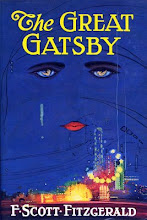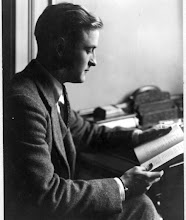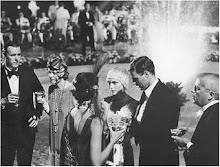The Beginning of a New Era
During the 1920s, many new philosophies were born in different people's heads. Freud is an example of a philosopher who greatly influenced people of the 1920s, but there were many others who began believing more modern ideas, who were called modernists. The Scopes Trial is an example of modernism and how influential it was. The Scopes Trial was, in actuality, a fight between modernists and traditionalists. The traditionalists, such as prosecutor William Jennings Bryan, wanted the teaching of evolution to stay illegal and Scopes to be arrested for teaching it in public school, because they believed very traditional ideas in all aspects of life.
The modernists, however, such as the defense attorney Clarence Darrow, believed that there should be freedom in the schools and new scientific theories should be able to be taught. Modernism was obviously spreading throughout the country, because many people were in support of Scopes and Darrow, because they thought it was ridiculous that the intellectualism of the citizens of America could be limited as greatly as the traditionalists wanted.
Modernism defines the Jazz Age, as people hungrily accepted new technologies and ideas that feats and projects that would have been thought unattainable prior to this age, such as a woman being able to cross the Atlantic in an airplane, were actually possible. People developed new literary techniques, as well, such as free verse and stream of consciousness, in order to express the new reality of the 1920s; that America was moving forward technologically, intellectually, and socially as never thought possible before.
 Modernist ideas were widely accepted by most people, especially of the younger generations, and while there were still many traditionalists around who wanted to fight these modern ideas, modernism prevailed and the nation continued making strives toward becoming all it could have become. These modernist ideas greatly affected the next steps of the country, and if an intellectual revolution such as the one during the 1920s had never happened, there is no telling what American culture would be like today.
Modernist ideas were widely accepted by most people, especially of the younger generations, and while there were still many traditionalists around who wanted to fight these modern ideas, modernism prevailed and the nation continued making strives toward becoming all it could have become. These modernist ideas greatly affected the next steps of the country, and if an intellectual revolution such as the one during the 1920s had never happened, there is no telling what American culture would be like today.The 1920s was an era of change in many ways, but culturally America was changed forever, for the better. People began to adopt new ideas and technologies that are much more similar to the way our culture is today, and how we live ours today.

















Another great post! Try to work on putting images and words on your sidebar. 75/75
ReplyDeleteMs. Donahue